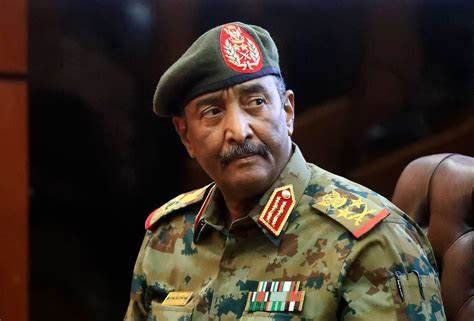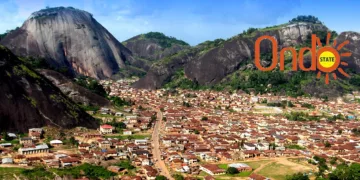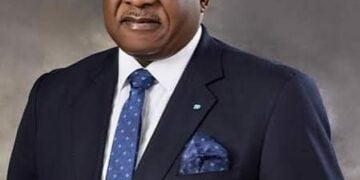The ongoing Sudanese war between the army and the Rapid Support Forces (RSF) continues to reveal hidden motives and expose the beneficiaries, particularly those at the top of the power structure.
At the end of April, Abdel Fattah Al-Burhan, the army chief and head of the Sovereignty Council who led the 2021 coup, made statements that sparked widespread controversy among Sudanese circles and angered social media users.
Al-Burhan declared that the era of road closures and the chants of “Glory to the Tires” (a reference to the burning tires used during the revolution) was over, asserting that “glory now belongs solely to the gun.” Observers saw this as an indication that the era of peaceful civilian change had ended, suggesting he would impose his authority through force and tolerate no opposition.
Al-Burhan affirmed that change would only come through armed struggle, a stance rejected by some “revolutionaries” currently fighting alongside the army against the RSF, claiming to support the national institution.
His remarks provoked outrage among youth groups, resistance committees, and political opposition, who had led the December Revolution that, in April 2019, toppled the Islamist regime led by former President Omar Al-Bashir.
Angry Reactions:
Al-Burhan’s statements were met with widespread criticism. Many believe that the ongoing war aims to crush the December Revolution and restore the Islamists to power through military force, while army supporters argue that the conflict has erased past grievances.
Yasir Arman, head of the Sudan People’s Liberation Movement – Revolutionary Current – wrote: “Glory to the Tires, Yes to the December Revolution, No to the April War.” A spokesman for the Sudanese Congress Party stated that the reality of the war had been exposed as being not for the homeland or dignity, but for power. He argued that Al-Burhan does not fear the gun, as it is his tool, but rather the voice of the masses and the slogans of the December Revolution.
The Coordination of Resistance Committees in El Fasher issued a statement: “We, the sons of the ‘Tires Revolution,’ do not need another identity. We set the streets ablaze not out of love for fire, but to ignite awareness. We took to the streets when the country was on the brink of collapse, calling for a homeland worthy of its people and a dignity that is earned, not granted.”
The statement added: “When the threat of invasion returned, the revolutionaries were not called to arms, but rather responded to the call of their own accord, not by order of a party or incitement of interest. They raised arms with the same hand that once raised tires, because the homeland is threatened, because the state is in danger, and because the people who came out for their dignity should not be crushed under the feet of those who do not know the meaning of homeland.”
Meanwhile, the Omdurman Old Resistance Committees stated that Al-Burhan’s speech was nothing but a mockery of the people’s struggle, degrading their means of resistance, which had stirred the world’s conscience and altered the course of history. “They say there is no glory in the tires,” the statement read, “but we say: all glory to the tires, as they were the fire of rage against oppression, and a symbol of resistance amid the darkness.”
The RSF also issued a statement, describing Al-Burhan’s remarks as a blatant betrayal, suggesting that his speech exposed the true motives behind the war. They asserted that Al-Burhan and his men were never part of the revolution and vowed not to back down until a civilian democratic system is established, removing Al-Burhan and his allies permanently.
Attempts to Erase the Revolution’s Gains
Attempts to undermine the December Revolution, which freed Sudan from the Muslim Brotherhood’s grip, began early when Al-Burhan overthrew the civilian government led by Abdullah Hamdok in a 2021 military coup.
Al-Burhan then formed a new Sovereignty Council, deliberately excluding members of the Forces of Freedom and Change (FFC) who were part of the original council that Al-Burhan dissolved.
Subsequently, he delayed signing the final political agreement between military and civilian forces, which aimed to return power to civilians.
This became evident when military leaders were absent from the closing session of the “Security and Military Reform Conference” in Khartoum, the last conference of the final phase of the political agreement, in late March 2023.
The agreement stipulates the transfer of transitional authority to a fully civilian government without the participation of the regular armed forces. It envisions a limited civilian sovereign level with ceremonial duties, representing the head of state, symbol of sovereignty, and supreme commander of the armed forces. Additionally, it includes an executive level led by a civilian prime minister chosen by the signatory forces, along with a legislative council and a security and defense council chaired by the prime minister, comprising leaders of the regular forces and six-armed struggle movements that signed the Juba Peace Agreement.
The agreement also mandates distancing the military from politics and from engaging in economic and commercial investment activities. It calls for integrating the RSF and armed movements into the national army according to arrangements to be determined later by the Demobilization and Reintegration Commission, as part of a security and military reform plan aimed at establishing a unified, professional national army. According to observers, Al-Burhan fears this transition.
Confusion caused by the Muslim Brotherhood
Since discussions began about the framework agreement paving the way for civilian rule, Islamist movements have emerged forcefully, convincing Al-Burhan to abstain from signing the agreement.
Journalist Hassan Khalil noted that the resurgence of the Muslim Brotherhood caused confusion, as Al-Burhan initially intended to leverage the group to support the coup, while the RSF leader opposed this approach.
Dr. Mohamed Al-Farajani, an Egyptian political science researcher, commented that the group openly rejected the framework agreement, claiming it threatened Sudan’s identity and could destabilize the nation, labeling the signatories as insignificant.
He added that the Muslim Brotherhood’s opposition arose because the agreement included dismantling the remnants of the former regime, undermining the gains they achieved during Al-Bashir’s rule.
Holding Sudan Hostage:
Previously, former minister and deputy head of the Sudanese Congress Party, Khalid Omar Youssef, accused Al-Burhan of holding Sudan hostage to his ambitions, using the country’s fate to secure his power. He described Al-Burhan’s insistence on legitimizing his authority as taking the nation hostage to achieve his political aims, and condemned what he described as “linking the achievement of a peaceful solution to legitimizing his stay in power,” adding, “It is as if he is holding the country and its people hostage to fulfill his authoritarian ambitions.”
He asserted that one goal has consistently driven and motivated Al-Burhan since the outbreak of the revolution: seizing power by employing what he termed the “Al-Bashir equation,” which involves dividing armed forces and exploiting their contradictions to secure his hold on power.
Sudan at a Crossroads:
Amidst the political and military turmoil, the Sudanese army, which seized power in a military coup on October 25, 2021, now faces a legitimacy crisis, thwarting hopes for a democratic transition after the December 2018 revolution.
The RSF have positioned themselves as the main armed faction resisting the coup, advocating for a civilian, secular state that embraces equal citizenship, devoid of military and Islamist dominance.
For decades, the army allied with the Muslim Brotherhood following the 1989 coup, leading devastating wars against various components of the Sudanese population in Darfur, South Sudan, and other regions, resulting in the country’s division and fragmentation.
Today, Sudan stands at a crossroads: the first path is represented by the army and the Islamist movement, aiming to establish a state that upholds Islamic law in the style of the Muslim Brotherhood, excluding the majority of the Sudanese people and fueling ongoing conflicts. The second path is led by the RSF alongside civilian currents, moving toward a democratic civil state that ensures equality and unites the Sudanese people without discrimination, based on a comprehensive vision to end decades of marginalization and conflict.





